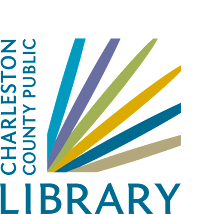- Our Man in Charleston: Britain's Secret Agent in the Civil War South by Christopher Dickey
- Charleston's Avery Center: From Education and Civil Rights to Preserving the African American Experience by Edmund L. Drago with Marvin Dulaney
- Barracoon: The Story of the Last "Black Cargo" by Zora Neale Hurston
- America's Longest Siege: Charleston, Slavery, and the Slow March towards Civil War by Joseph Kelly
- The Origin of Others by Toni Morrison, with a forward by Ta-Nehisi Coates
- Black Charlestonians: A Social History 1822-1885 by Bernard E. Powers
Saturday, June 22, 2019
Readalikes: If you enjoyed June's selection . . .
If you enjoyed Denmark Vesey's Garden: Slavery and Memory in the Cradle of the Confederacy by Ethan J. Kytle and Blain Roberts, then you might also enjoy these books recommended by our discussion group members:
Tuesday, June 4, 2019
June Not Fiction Book Discussions
Denmark Vesey's Garden: Slavery and Memory in the Cradle of the Confederacy by Ethan J. Kytle and Blain Roberts asks us to consider how communal memory is constructed and how that memory affects our relationships within our communities. Kytle and Roberts, historians at California State University, Fresno, explore in depth how Charleston, South Carolina, remembers--or rather, misremembers, or even forgets--its central role in slavery, and how this communal act of misremembering and forgetting affects race relations in the United States today.
Kytle and Blain document in nuanced detail the systematic and institutionalized whitewashing and outright suppression of the truth about slavery in historical tourism beginning as soon as the 1860s, bolstered by Jim Crow violence into the 1960s, and continuing even today by examining how national holidays are celebrated, how historical figures are monumentalized, and how black culture is interpreted and often appropriated. Kytle and Blain help us see that the romantic, moonlight-and-magnolia version of the South and of Charleston in particular that draws thousands of tourists each year rests on fundamental misconceptions. As Kytle and Blain were completing work on Denmark Vesey's Garden in 2015, Dylann Roof visited Charleston, stoking his racial hatred at cultural and historical sites, and ultimately shooting nine people at Emanuel A.M.E. church, the congregation of Denmark Vesey, the black revolutionary who plotted a failed slave insurrection in 1822. Kytle and Blain connect the national communal narrative about slavery to America's current racial divide:
We hope you will join the discussion: Tuesday, June 4, at 6:30 p.m. at Main Library; Thursday, June 20, at 11:00 a.m. at West Ashley Branch Library; and here on the blog.
Kytle and Blain document in nuanced detail the systematic and institutionalized whitewashing and outright suppression of the truth about slavery in historical tourism beginning as soon as the 1860s, bolstered by Jim Crow violence into the 1960s, and continuing even today by examining how national holidays are celebrated, how historical figures are monumentalized, and how black culture is interpreted and often appropriated. Kytle and Blain help us see that the romantic, moonlight-and-magnolia version of the South and of Charleston in particular that draws thousands of tourists each year rests on fundamental misconceptions. As Kytle and Blain were completing work on Denmark Vesey's Garden in 2015, Dylann Roof visited Charleston, stoking his racial hatred at cultural and historical sites, and ultimately shooting nine people at Emanuel A.M.E. church, the congregation of Denmark Vesey, the black revolutionary who plotted a failed slave insurrection in 1822. Kytle and Blain connect the national communal narrative about slavery to America's current racial divide:
It is hardly a coincidence that whitewashed memories of slavery, the Confederacy, and the Civil War find more fertile ground on the political right than on the left. These ideas, after all, have long reinforced reactionary positions. A century ago, the Lost Cause provided the intellectual and emotional foundation for segregationist laws and customs. Today, the enduring misunderstanding born from Lost Cause mythology make it easier to oppose policies and programs that would redress the legacies of slavery and Jim Crow--from affirmative action and more progressive taxation to criminal justice reform and reparations.What do you think? If you grew up in Charleston, how does Denmark Vesey's Garden compare with your understanding of the history and culture of your hometown? If you were a tourist in Charleston before moving here, what narrative, explicit or implicit, were you offered by the tours and programs in which you participated? How does Denmark Vesey's Garden challenge this narrative? In your opinion, is Charleston and the United States making progress in having an honest conversation about slavery and its historical legacy? Does it adequately acknowledge black experience and culture? In addition to appropriately interpreting our communal history, what can we do to facilitate this crucial conversation?
We hope you will join the discussion: Tuesday, June 4, at 6:30 p.m. at Main Library; Thursday, June 20, at 11:00 a.m. at West Ashley Branch Library; and here on the blog.
Subscribe to:
Posts (Atom)

